HEXAGONZO JOURNALISM: I go to Taiwan with my family, eat delicious street food, climb a mountain, visit some temples, drink so many Taiwanese pour-overs I sweat pure coffee, and return to Paris without creating an international incident. A few days later, Emmanuel Macron, at an all-time low in French opinion polls because of his rammed-through retirement reforms, goes to mainland China with his wife, 60 French business leaders, the film director Jean-Jacques Annaud, the musician Jean-Michel Jarre and Jarre’s Chinese-born, Singaporean actress girlfriend Gong Li, and the whole world goes apeshit.
Coincidence or its parallel opposite, its reversal, its upending? Not for me to say. Something, however, is definitely afoot, attached to a leg, requiring a pull. So heave ho, here we go.
According to elysee.fr, the official propaganda site of the French state, on his first state visit to China in January 2018, Macron and the Chinese leader Xi Jinping “established a bilateral roadmap with concrete actions and projects.” Macron made three promises: to visit China once a year; call Xi regularly on the phone; and multiply sideline meetings with Xi at summits such as the G20. Nothing new here: in 1949, France was the first major western country to establish diplomatic relations with Communist China. Prior to that, Zhou Enlai and Deng Xiaoping studied in Paris, and fell hard for Jean-Jacques Rousseau. Etcetera.
To show his appreciation, Macron brought Xi a gift horse – a brown stallion from the Republican Guard named Vésuve de Brekka. Xi, presumably, didn’t look it in the mouth, or if he did, liked the look of its teeth, and subsequently green-lit a host of fat contracts with Airbus, EDF, LVMH, L'Oréal, Veolia and other French companies.
The following year, Macron gave Xi a bottle of 1978 Romanée Conti – chosen because 1978 was an excellent year for Burgundy pinot noir – a bottle of 1978 Romanée Conti was auctioned in January 2019 for HK$186,000 (€21,539) by Sotheby’s in Hong Kong – and because 1978 was the year Deng Xiaoping came to power, and Macron, then a precocious one-year-old, became, as the French say, “propre” – potty-trained. Earlier that day the two presidents had tasted a Domaine Louis Latour’s Corton Grancey Grand Cru 2010, Gérard Bertrand’s Château L’Hospitalet, La Clape, Coteaux du Languedoc 2016 and a Cheval Blanc 2006, before agreeing to a trade deal between the European Union and China to give legal protection to 100 of Europe’s ‘Geographical Indications (GI)’ in China – of which 26 were French GIs (“Champagne”, “Bordeaux” etc.) and 100 Chinese GIs in EU member states.
Earlier that year, at a private dinner on the French Riviera in March, the two sipped Pol Roger Sir Winston Churchill 2000 Champagne, Petrus 2002 and Joseph Drouhin’s Marquis de Laguiche Montrachet grand cru 2011. According to Le Figaro, the accompanying food included asparagus, crab and fillet of veal, and “local specialities”.
A year later, the pandemic stopped the party.
For this most recent trip, Macron brought along some serious “soft power”, including many representatives of the French film industry, such as the 80-year-old filmmaker Annaud, who, like Gong Li, is on the strategic committee of the France-China Foundation. Also on the committee are former French prime ministers Edouard Phillipe, Laurent Fabius and Jean-Pierre Raffarin, Alibaba’s Jack Ma, the architect Jean Nouvel and Li Zhaoxing, the Chinese Foreign Minister from 2003 to 2007.
Annaud attended various official functions, including the state dinner in Beijing’s Great Hall of the People. He also promoted his 2022 disaster epic Notre-Dame on Fire, which opened theatrically nationwide in China during the visit. It is the first French film to be released in the country since the beginning of the COVID pandemic.
Annaud is well-known in China because of his 2015 Chinese-French co-production Wolf Totem, shot in Inner Mongolia and based on a bestselling novel by Chinese author Jiang Rong. The film earned €115 million in China and was the country’s official Oscar selection for best foreign language film category that year.
Annaud was not always the poster boy of Franco-Chinese relations. In 1997, he made Seven Years in Tibet (1997) for Sony. The film starred Brad Pitt as Heinrich Harrer, the Nazi SS Sargent who became the Dalai Lama’s tutor during World War II. That same year, Disney released Kundun (1997), directed by Martin Scorsese, which told the story of the Dalai Lama’s life in Lhasa during the late 1930s and the 1940s, and MGM released Red Corner (1997), about an American businessman, played by Richard Gere, accused of murder in China.
As Orville Schell puts it in a great piece (“Appeasement at the Cineplex”) in last week’s NYRB (paywalled), “Chinese cultural watchdogs immediately attacked these films for idealizing ‘feudal society’ in traditional Tibet and for ‘demonizing China.’” Kundun caused Disney to lose a theme park deal in Shanghai. Disney products in China were banned. The company’s CEO Michael Eisner was forced to grovel to Chinese premier Zhu Rongji, calling the film “a stupid mistake” and “a form of insult to our friends.” To this day, Richard Gere (a long-time supporter of Tibet) is blacklisted by Hollywood.
As for Annaud:
Eisner was hardly alone in his servility. Annaud, who had been an admirer of the Dalai Lama, restored himself to Chinese Communist Party (CCP) favour by making a classic Maoist-style “self-criticism.” “Due to the lack of thorough understanding of Chinese history and culture, I could not predict the adverse effects of [Seven Years in Tibet],” he intoned. “I regret it.” Then he offered a bonus genuflection by acknowledging that Tibet was “part of Chinese territory.” Reborn as a full-fledged panda hugger, Annaud was invited to the Shanghai International Film Festival, where he accommodatingly wondered, “What would we think in France if the Chinese were interfering with Corsica? Or what would Americans think if Chinese were interfering with Puerto Rico?”
Seven Years in Tibet gave Annaud even more of an itch in 2017, when the Paradise Papers investigation showed that the year of its release, 1997, during which it generated €110 million at the world box office, he squirrelled away his share (€1.2 million) in an offshore account on the island of Guernsey. In March 2021 he was sentenced to a nine-month suspended prison sentence and a €120,000 fine for tax fraud laundering.
Cut to the afore-mentioned apeshit. It started after the luxury goods conglomerate LVMH-owned financial daily Les Echos and Mathias Döpfner’s Politico published a much Elysée-edited conversation with Macron, held during his flight back to Paris after the three-day state visit. During the interview Macron reiterated France’s claim of strategic autonomy and called upon the European Union to avoid getting embroiled in a conflict over Taiwan driven by the “US agenda and a Chinese overreaction”.
“The trap for Europe would be that, at the moment when it achieves a clarification of its strategic position, it gets caught up in a disruption of the world and in crises that are not our own.”
None of this is particularly new. Macron and every French president since de Gaulle have laid some sort of claim to strategic autonomy. The problem was not so much what Macron said as where he said it, and when – just as, in response to the meeting the week before between Taiwanese President Tsai Ing-wen and the Speaker of the US House of Representatives, Kevin McCarthy – 50 Chinese military ships and 70 Chinese fighter planes bombers started playing footsie with the Taiwan Strait’s median line.
A clumsy mistake. Undiplomatic. Ill-timed. As was, many argue, the trip to China in the first place, coming as it did just two weeks after Xi’s trip to Russia. But, again, it does not represent a change in France’s position toward the United States, China or Taiwan, and is very much in line with French political opinion across the board, from Mélenchon on the hard left to Le Pen and Zemmour on the extreme right. And Macron is no doubt correct in his assumption that Putin’s dependence on Xi Jinping makes China “the only country in the world able to have an immediate and radical impact on the Ukraine conflict”. But nothing came from their discussions. Except, of course, some spectacular trade deals with China. Which, despite all the talk of de-coupling from China – in a “world order” only (and barely) held together by the US dollar, and in the face of the United States’ upcoming debt-ceiling debacles and the subsequent budgetary and political crises looming this summer everywhere – are precisely the type of deals that France, and Europe, and everyone else are desperate for.
Last year, China was the largest source of EU goods imports and the third largest destination for EU goods exports. Chinese airlines bought 350 Airbus aircraft during the pandemic, ordered another 140 in November, and a contract signed last week will deliver a whole new production line.
LVMH is now worth €447 billion, up 17% from last year, and China accounts for close to a third of its revenue. Hermes is worth €206 billion; its revenue is a quarter higher than last year, driven in good part by booming sales of Birkin bags in China. Toss in L’Oreal’s €225 billion and you’ve accounted for close to half the full investment value of Paris’s CAC-40 index.
Macron, in a first for a French president, visited Guangzhou, where most of the Chinese nuclear power plants built or being built with France are located, and where China’s scrambling digital industry and start-up culture is based – designated by Xi as “strategic” and “essential” after the American crack-down on high-tech trade. Etcetera. This also goes some way towards explaining Macron’s oft-repeated but almost-never-discussed mentioning of de-dollarisation, high-lit last week by the French firm Total’s first energy supply contract negotiated in yuan, for the delivery of an ‘unprecedented’ 65,000 tonnes of liquid natural gas (LNG) from the United Arab Emirates.
Back to the gift table.
This time, Macron brought Xi the two Marc Riboud photographs above and a Sèvres porcelain vase decorated with golden fish. We brought, or rather were brought by, my mother-in-law, who studied medicine at the University of Taiwan in the early 1960s. We then, as a gesture of soft power diplomacy, left behind our youngest daughter to study Mandarin for three months. I forget what exactly her newly acquired name, Yang enshi (杨英石), given to her by her grandmother, means, but the first half, Yang, is also the first half of the name of the giant panda in the Atlanta zoo, Yang Yang, the mate of Lun Lun and the father of Mei Lan, Xi Lan, Po, Mei Lun, Mei Huan, Ya Lun and Xi Lun. Because giant pandas are solitary and males do not participate in cub-rearing, Yang Yang is kept separate from Lun Lun and their offspring. This I find very sad, but not as sad as the plight of the Memphis Zoo’s Ya Ya, who is suffering from a horrible skin rash, and whose mate Le Le died in February, just before the couple’s scheduled return to a wildlife reserve in China.
These and other giant pandas are part of China’s ongoing panda diplomacy program. The animals are leased to zoos for a period of time for a fee usually between €500,000 to €1 million a year each.
Once on the verge of extinction, the bears are now said to be thriving because of the program.
There are two great pandas at the Taipei Zoo. I’ll put their story in a footnote.1 My daughter Yang enshi has yet to visit them.
Nor has she visited the great pandas at the Beauval Zoo in France’s Loire Valley. In 2017, Yuen Meng was born in the zoo to Yuan Zi and Huan Huan after a complicated mating (female great pandas are only in heat 48 hours a year, and male pandas do not have a very strong libido).
A 2013 Oxford University study describes the links between economic agreements and “Soft ‘Cuddly" Power”:
Two trends can be discerned in recent panda trades: first, they involve Asian neighbours, with whom China has signed free trade agreements since 2009. Second, they involve nations that supply China with natural resources or advanced technologies.
The pandas loaned to France in 2012 fall into the latter camp. According to Agence France, delivery “was delayed until the G20 summit could resolve the financial crisis in Europe. Then, according to the BBC, “the panda gift-loan coincided with an estimated US$20 billion package of deals involving the supply of uranium oxide and construction of a uranium treatment plant in China by French nuclear giant Areva [now Orano], and an investment by the energy giant Total for a Chinese petrochemical plant.”
The bear cub was supposed to remain in France until his third birthday, after which it was to be returned to China and set free in a wildlife reserve. However, the pandemic delayed Yuan Meng’s departure. Which explains why Rodolphe Delord, the CEO of Beauval Zoo, was part of the French delegation on Macron’s state visit. What was negotiated has not yet been disclosed.
I’ll leave you now with this delightful clip of the cub’s christening, during which his godmother – Brigitte Macron – said that “Yuan Meng is the energetic and vigorous fruit of the Franco-Chinese friendship, of this solid friendship.” The cub is now six years old and fully grown. Judging by what we see in the video, I fully expect to see him out on the streets come May Day, participating in what the labour unions, despite the Constitutional Council’s validation of Macron’s pension reform on Friday, are hoping will be the “manifestation du siècle” – the “protest of the century”.
Thanks for reading. Have a quick look below the video at two other species of bears duking it out near the Taiwan Straight. And please press all the appropriate buttons on your way out. Ta.
From Wikipedia: In 2005, Lien Chan, Chairman of the Kuomintang, the then sichuan party in Taiwan, visited mainland China. As part of the talks between Lien and the CCP, two pandas (later named Tuan Tuan and Yuan Yuan, meaning "reunion" in Chinese) were offered as a gift to the people of Taiwan.
While the idea was popular with the Taiwanese public, it was opposed by the Republic of China (ROC) government of Taiwan, then led by the Democratic Progressive Party (DPP), which favors Taiwanese independence and staunchly opposes unification with the People's Republic of China. The gift of pandas was seen as an attempt by the CCP to draw the ROC government into its "united front". While several zoos in Taiwan made bids to host the pandas, the ROC government raised objections, ostensibly on the grounds that pandas were not suited to the Taiwanese climate and that Taiwan did not have the expertise to rear pandas successfully. It was widely understood, however, that these were pretexts underlaid by political considerations by the DPP-led government to maintain its distance from the PRC government. Another technical issue is a dispute over the applicability of the Convention on the International Trade of Endangered Species (CITES). In 1998, China offered the Republic of China two giant pandas in exchange for wartime peace. The PRC insisted that a transfer from mainland China to Taiwan was a domestic transfer, not subject to CITES, while the ROC government disputed this and would not accept the pandas without CITES procedures.[28] On March 11, 2006, the ROC formally rejected the offer, with President Chen Shui-bian explaining in his weekly newsletter, "A-bian (Chen's nickname) sincerely urges the Chinese leaders to leave the giant pandas in their natural habitat, because pandas brought up in cages or given as gifts will not be happy."
Following a change of government in Taiwan, in July 2008, the ROC government led by the Kuomintang stated that it would accept the gift of two four-year-old giant pandas. In December 2008, the government approved the import of pandas under the terms of "species of traditional herbal medicine." Tuan Tuan and Yuan Yuan arrived at Taipei Zoo later in the same month.



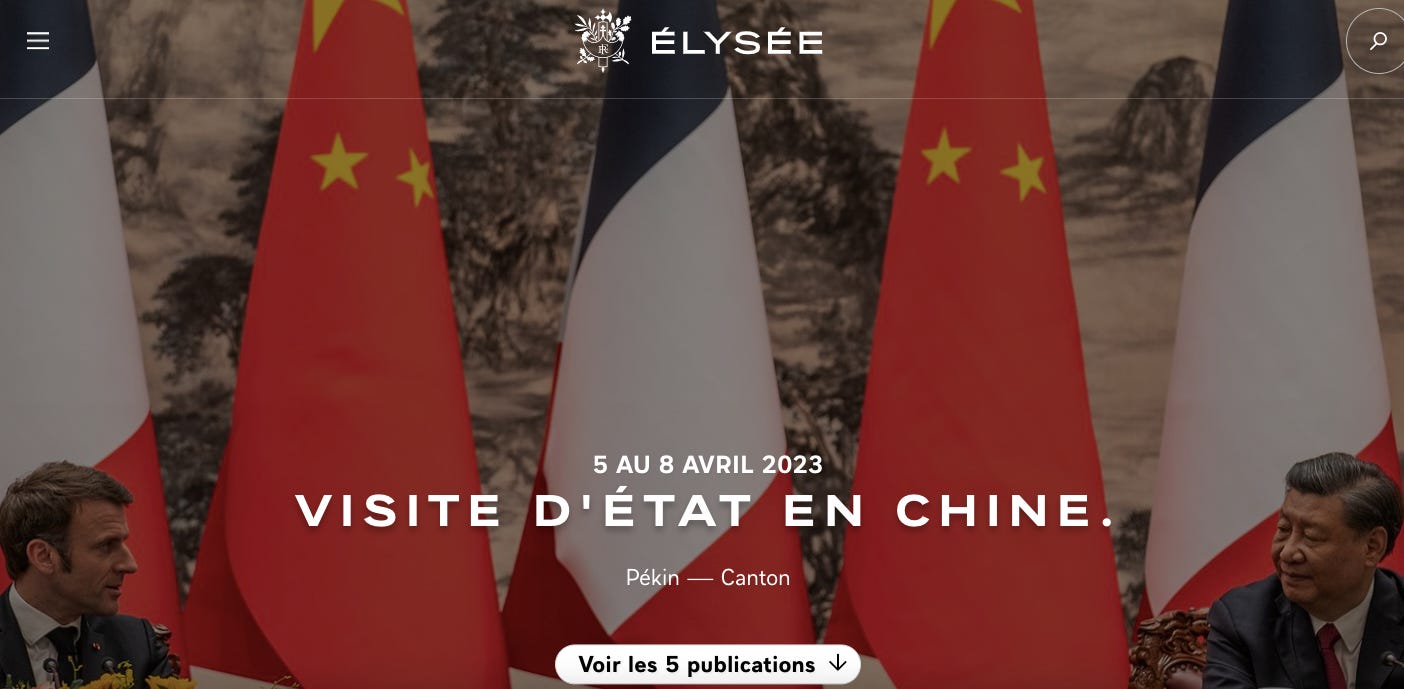
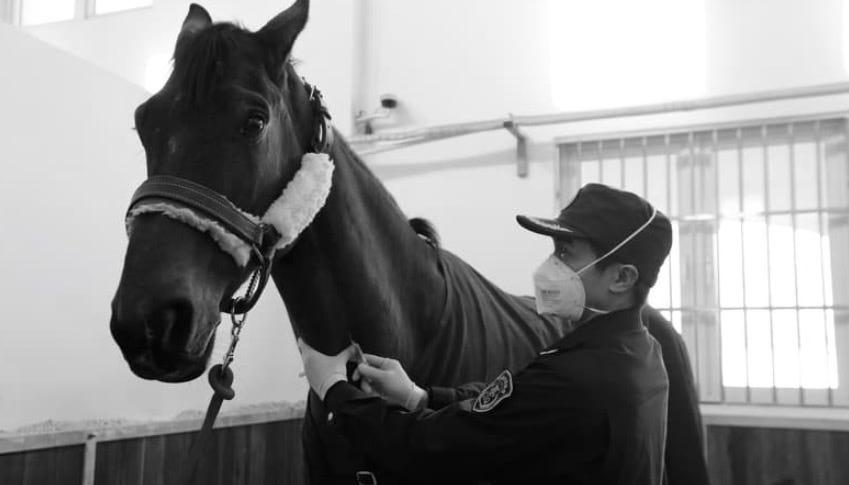
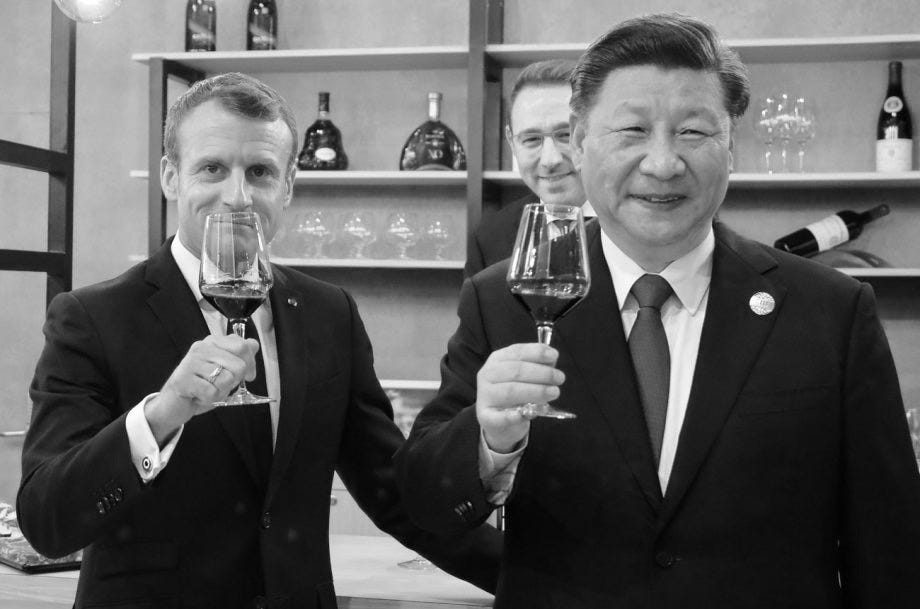
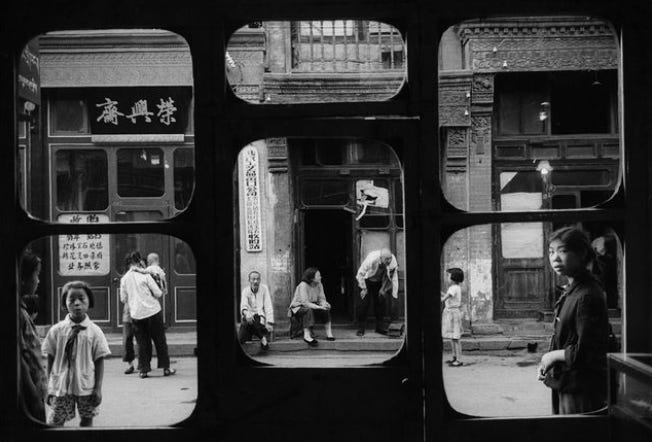
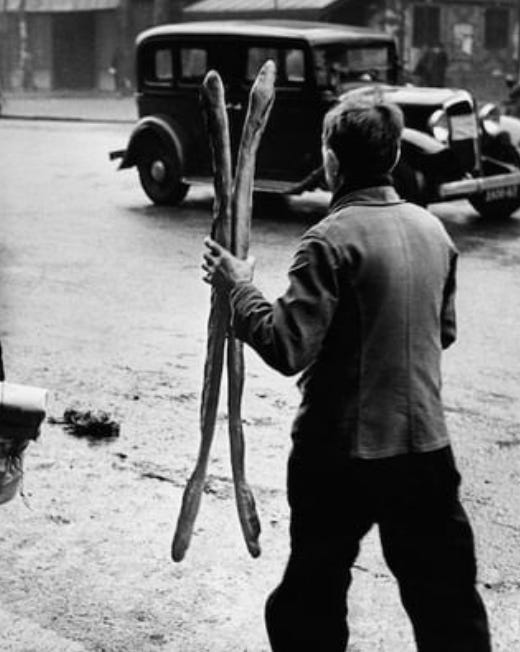
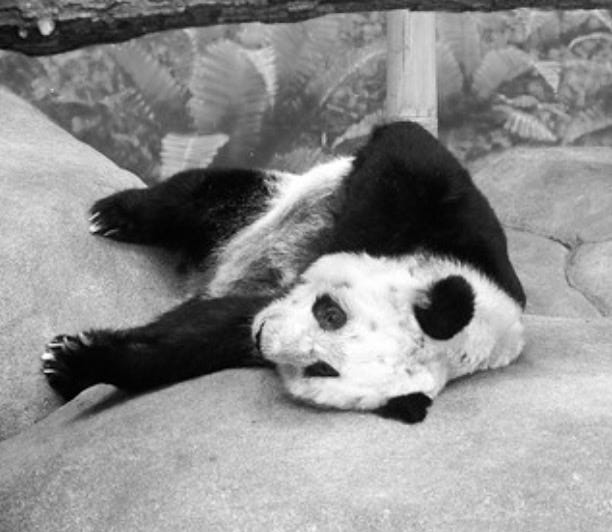
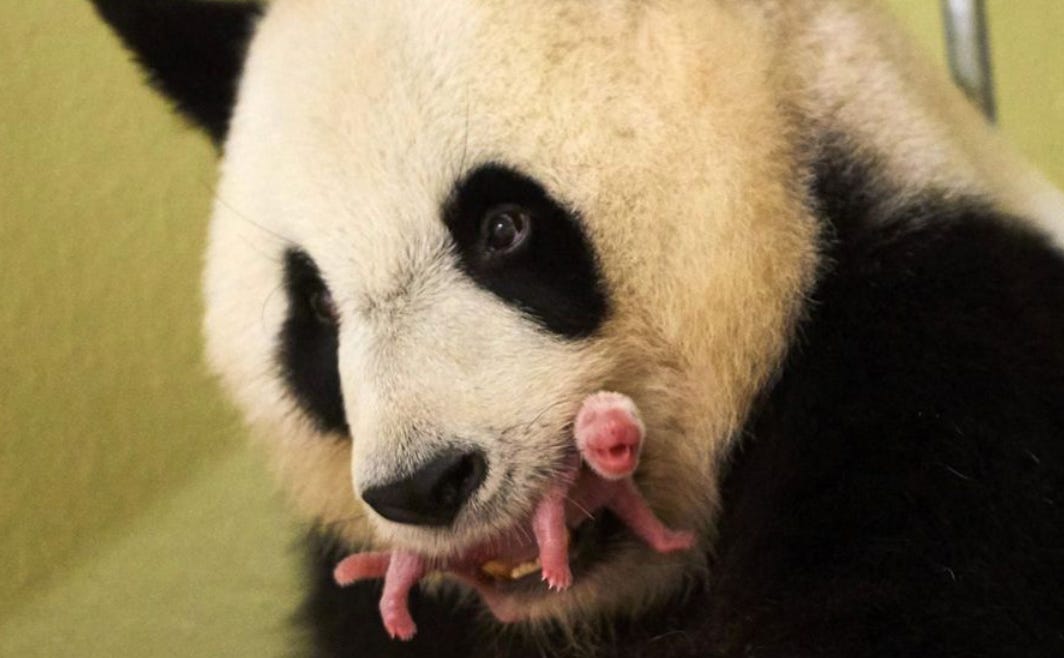

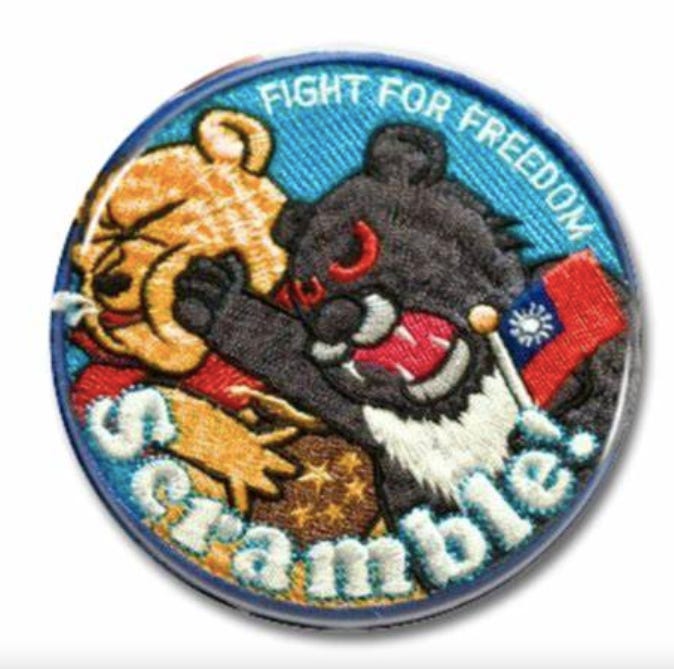
Hilarious. Dropping your daughter off for a language exchange program equated with soft power, followed by the panda diplomacy had me in stitches.
Great and juicy read! Left a taste of refined dumplings in my brain and an affirmation of my flea market finds- luxury at it’s best .